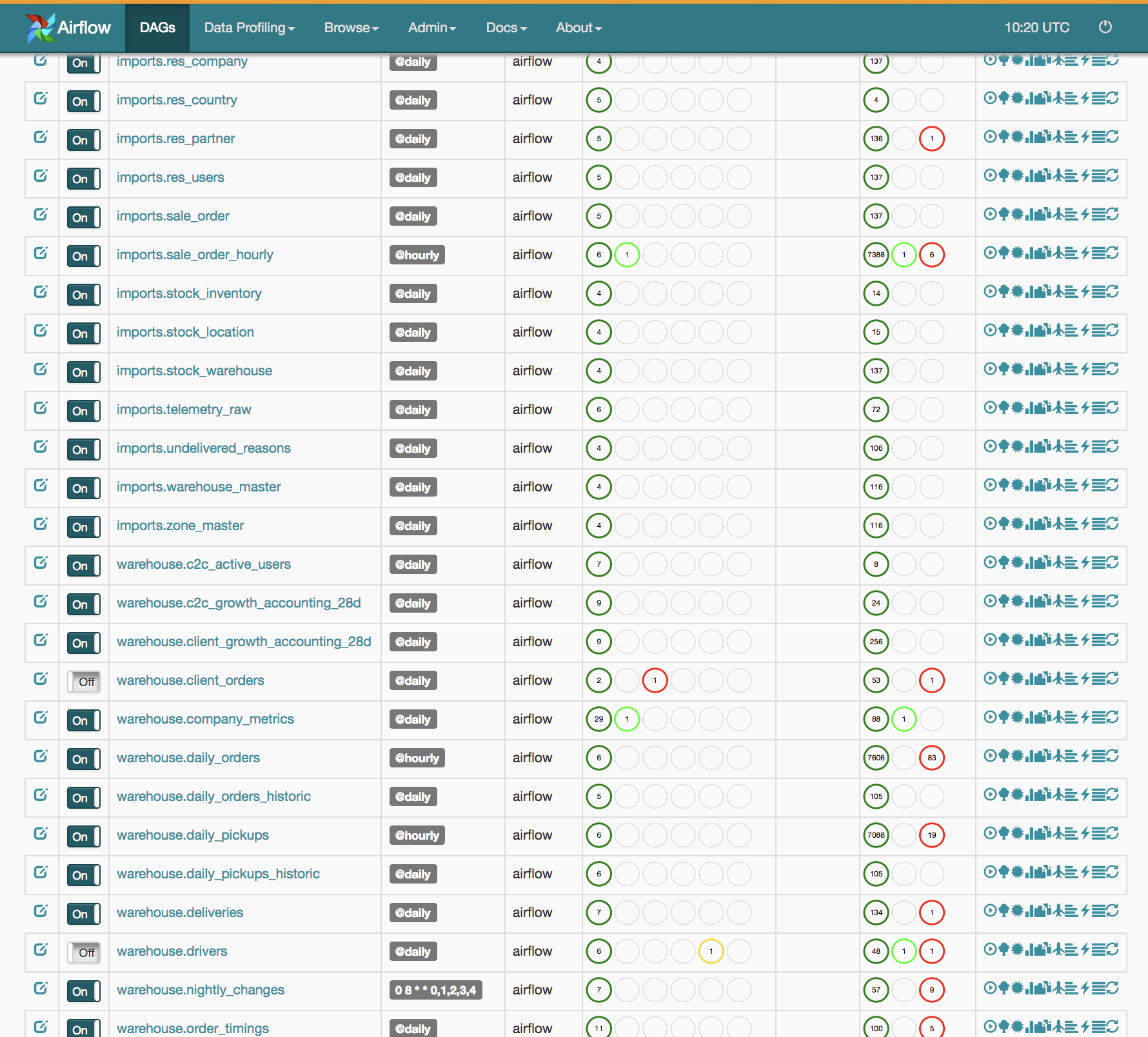Luigi vs Airflow vs Pinball
Marton Trencseni - Sat 06 February 2016 • Tagged with data, etl, workflow, luigi, airflow, pinball
A spreadsheet comparing the three opensource workflow tools for ETL.
Marton Trencseni - Sat 06 February 2016 • Tagged with data, etl, workflow, luigi, airflow, pinball
A spreadsheet comparing the three opensource workflow tools for ETL.
Marton Trencseni - Sat 06 February 2016 • Tagged with data, etl, workflow, pinball
Pinball is an ETL tool written by Pinterest. Like Airflow, it supports defining tasks and dependencies as Python code, executing and scheduling them, and distributing tasks across worker nodes. It supports calendar scheduling (hourly/daily jobs, also visualized on the web dashboard). Unfortunately, I found Pinball has very little documentation, very few recent commits in the Github repo and few meaningful answers to Github issues by maintainers, while it's architecture is complicated and undocumented.
Continue readingMarton Trencseni - Wed 06 January 2016 • Tagged with data, etl, workflow, airflow
Airflow is a workflow scheduler written by Airbnb. It supports defining tasks and dependencies as Python code, executing and scheduling them, and distributing tasks across worker nodes. It supports calendar scheduling (hourly/daily jobs, also visualized on the web dashboard), so it can be used as a starting point for traditional ETL. It has a nice web dashboard for seeing current and past task state, querying the history and making changes to metadata such as connection strings.
Marton Trencseni - Sun 20 December 2015 • Tagged with data, etl, workflow, luigi
I review Luigi, an execution framework for writing data pipes in Python code. It supports task-task dependencies, it has a simple central scheduler with an HTTP API and an extensive library of helpers for building data pipes for Hadoop, AWS, Mysql etc. It was written by Spotify for internal use and open sourced in 2012. A number of companies use it, such as Foursquare, Stripe, Asana.
Continue readingMarton Trencseni - Mon 26 January 2015 • Tagged with data
Cargo cult data is when you're collecting and looking at data when making decisions, but you're only following the forms and outside appearances of scientific investigation and missing the essentials, so it doesn't work. 